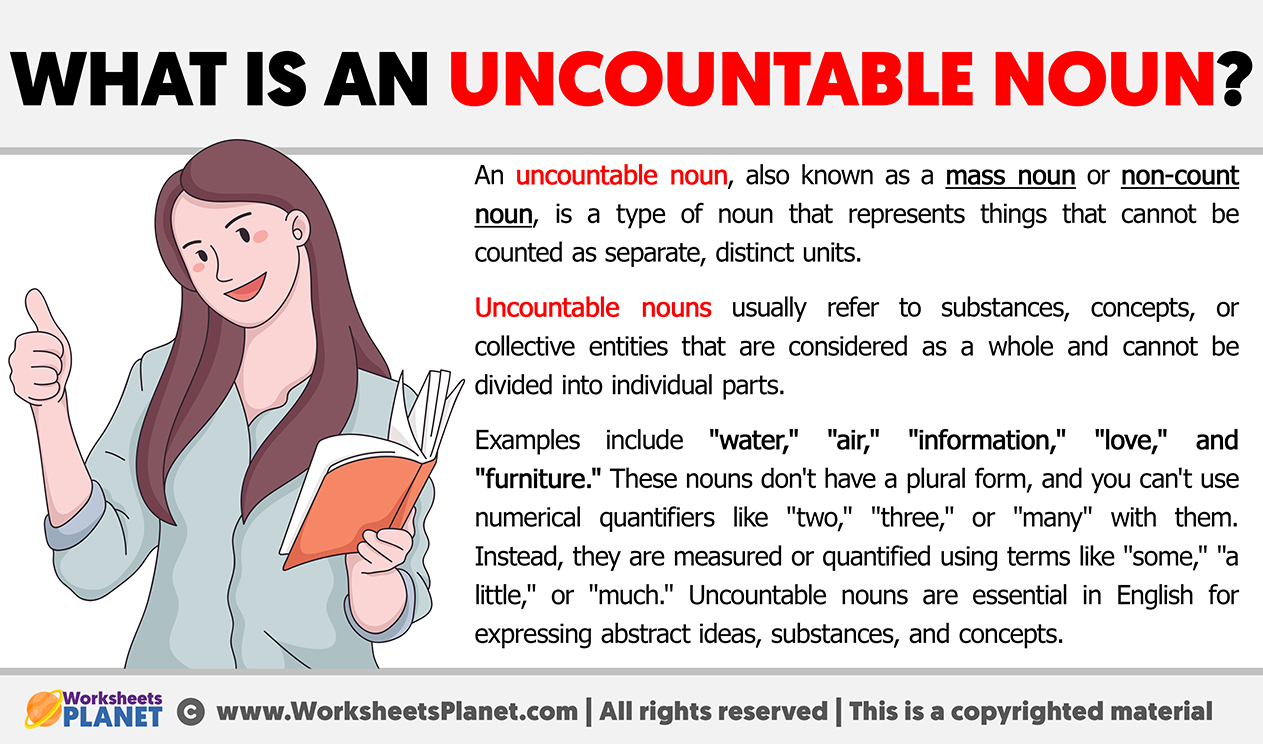An uncountable noun, also known as a mass noun or non-count noun, is a type of noun that represents things that cannot be counted as separate, distinct units.
Uncountable nouns usually refer to substances, concepts, or collective entities that are considered as a whole and cannot be divided into individual parts.

Examples include “water,” “air,” “information,” “love,” and “furniture.” These nouns don’t have a plural form, and you can’t use numerical quantifiers like “two,” “three,” or “many” with them.
Instead, they are measured or quantified using terms like “some,” “a little,” or “much.” Uncountable nouns are essential in English for expressing abstract ideas, substances, and concepts.

